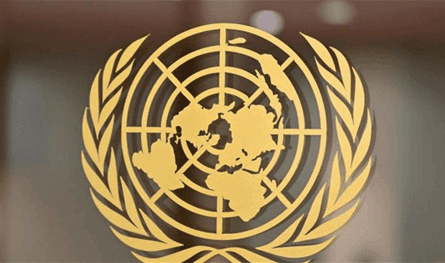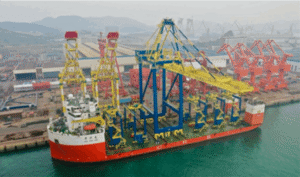
The United Nations, one of the most prominent pillars of the international system since its foundation in 1945, is facing a financial predicament that ravages its ability to carry out its increasing tasks.
Despite the approval of an annual budget in billions, the chronic delay in paying the shares of member states puts the organization in front of a continuous liquidity crisis, the General Secretariat prompted unprecedented austerity measures. The United Nations public finances depend on three main sources. The first is the regular budget, which covers administrative expenditures and basic programs, and in 2025 it reached about $ 3.5 billion. The second is the peacekeeping budget, which is separated from it, and the missions of the United Nations forces deployed in the conflict areas are funded, and it amounted to the fiscal year 20242025 approximately $ 5.6 billion. The third source comes from voluntary donations that go to specialized agencies and programs such as the World Food Program, UNICEF, and the High Commissioner for Refugees. These donations often exceed the regular budget, but it is conditional on the donors, to be used in specific projects, which makes them not available to fill operational gaps or support the General Secretariat. The burden of financing is distributed among member states according to a system called the evaluation scale, which is approved by the General Assembly every three years. This equation is based on the strength of each economy, from GDP and individual income to public debt rates, with exemptions or discounts for developing and less developed countries. According to the last scale, the United States bears about 22% of the regular budget, while China is approaching 20%. Japan, Germany, and the United Kingdom come in the following ranks. But this concentration makes the situation very fragile: any delay or abstinence from a major country that means a direct gap with hundreds of millions of dollars. The Great Dawn is that the United Nations deficit is not usually related to the lack of credits, but rather to the delay in cash flows. According to a report issued by the United Nations Office in Geneva on May 30, the amounts that entered the treasury of the organization did not exceed $ 1.8 billion out of 3.5 billion accredited by April 2025. That is, the organization operates with almost half its resources, at a time when the tasks of keeping peace to the humanitarian response are increasing. Temporary gaps. But even this fund remains limited, which leaves the organization under permanent pressure. A direct impact on field operations
The financial crisis is not only an accounting issue, but rather is reflected directly on the work of the organization around the world. Delayed funds leads to delaying the payment of contractors ’contracts, slowing the response of peacekeeping missions, and even disrupting some development activities. In Africa, for example, peacekeeping missions in Mali and South Sudan face increasing difficulties in securing the necessary funding for logistical operations. In the Middle East, relief programs suffer from the delay in the arrival of allocations, which threatens to reduce aid in conflict areas. In front of this reality, the General Secretariat resorted to strict steps, including intense use of the working capital fund, although it is designed to cover only short -term gaps, and to cancel or freeze in non -essential jobs, which raised the concern of employees at the headquarters in New York. Moreover, the organization decided to launch the Honour Roll lists to name the countries that have paid their entire share, in an attempt to morally pressure on the retarded. The organization also worked to rearrange the priorities by focusing the resources on the most urgent activities and postponing what can be postponed. But these measures, according to observers, do not address the roots of the crisis, but postpone them. The financing crisis is not new. At the beginning of the millennium, the organization faced a clash with the United States when Congress imposed a roof on Washington’s contribution, which led to huge arrears. Today, the scene is repeated differently: some major countries, including China and the United States, are delayed in pushing for political or economic reasons, and the budget turns into an unannounced pressure paper. (Al Ain)
The post A stifling liquidity crisis strikes the United Nations .. What is happening? APPEROD First on 961 tobay Lebanon today.

















